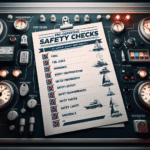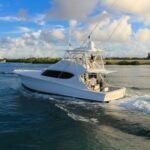What Are The Regulations For Obtaining A Boating Registration In Oregon?
Have you ever wondered what it takes to obtain a boating registration in Oregon? Whether you’re a seasoned boater or a beginner looking to hit the water for the first time, it’s essential to understand the regulations and requirements for boating in the state. From registration fees to safety equipment, there are several things you need to know before you can legally take your boat out on the water in Oregon. Read on to learn everything you need to know about obtaining a boating registration in the Beaver State.

Registering Your Boat in Oregon
When it comes to boating in Oregon, one of the first things you need to do is register your boat with the Oregon State Marine Board (OSMB). All motorized boats, sailboats over 12 feet in length, and any boat used to access Oregon’s waterways are required to be registered with the OSMB. This includes not only motorized boats but also canoes, kayaks, and paddleboards.
Registering your boat is a simple process that can typically be completed online through the OSMB’s website. You’ll need to provide information about your boat, such as its make, model, year, and hull identification number. You’ll also need to pay a registration fee, which varies depending on the size of your boat.
Required Documentation
In addition to registering your boat with the OSMB, you’ll also need to have certain documentation on board whenever you’re out on the water. This includes your boat registration card, which serves as proof that your boat is legally registered in Oregon. You’ll also need to have your registration decals displayed on your boat at all times.
In addition to your registration documents, you’ll also need to carry a valid form of identification with you whenever you’re operating your boat. This can be a driver’s license or another form of government-issued ID.
Keeping Your Registration Current
Once you’ve registered your boat with the OSMB, it’s important to keep your registration current. Boat registrations in Oregon are valid for two years, so you’ll need to renew your registration every two years to stay legal. The OSMB will send you a renewal notice before your registration expires, so make sure to keep an eye out for this notice and renew your registration before it lapses.
If you sell your boat or otherwise transfer ownership, you’ll need to notify the OSMB as soon as possible. Failure to do so can result in fines and penalties, so it’s important to keep your registration information up to date at all times.
Boating Safety Requirements
In addition to registering your boat with the OSMB, there are also certain safety requirements you need to meet in order to legally operate your boat in Oregon. These requirements are designed to ensure the safety of both boaters and other waterway users and include things like carrying the necessary safety equipment on board your boat.
Life Jackets
One of the most important safety requirements for boaters in Oregon is the requirement to carry life jackets on board your boat. All recreational boats in Oregon must have at least one wearable US Coast Guard-approved life jacket for each person on board. Children under the age of 12 are required to wear a life jacket at all times while the boat is underway.
Fire Extinguishers
Depending on the size and type of your boat, you may also be required to carry a fire extinguisher on board. Motorboats with enclosed fuel compartments or enclosed engine compartments are required to carry at least one B-1 type fire extinguisher on board. Make sure to double-check the specific requirements for your boat to ensure that you’re in compliance with Oregon’s boating safety regulations.
Sound-Producing Devices
Another important safety requirement for boaters in Oregon is the requirement to carry sound-producing devices on board your boat. This can include things like whistles, horns, or bells that can be used to signal other boaters in case of an emergency.
Navigation Lights
If you plan to operate your boat after dark, it’s also important to make sure that you have the necessary navigation lights installed on your boat. All motorized boats in Oregon must have the appropriate navigation lights displayed between sunset and sunrise and during periods of reduced visibility.
Boating Education Requirements
In addition to meeting the safety equipment requirements, boaters in Oregon are also required to complete a boating safety education course before operating a motorboat over 10 horsepower. This course covers important topics like navigation rules, boating laws, and safety regulations, and is designed to help you operate your boat safely and responsibly on Oregon’s waterways.
Who Needs to Take the Course?
The boating safety education course is required for anyone born on or after January 1, 1955, who wishes to operate a motorboat over 10 horsepower in Oregon. This includes both residents and non-residents of the state, so if you’re planning to take your boat out on Oregon’s waterways, make sure to check whether you need to complete the course.
How to Take the Course
The boating safety education course can be completed either in person or online through a course approved by the National Association of State Boating Law Administrators (NASBLA). Once you’ve completed the course, you’ll need to carry your boater education card with you whenever you’re operating your boat to show that you’ve met Oregon’s boating education requirements.

Boating Under the Influence
Just like driving a car, it’s illegal to operate a boat under the influence of alcohol or drugs in Oregon. Boating under the influence (BUI) is a serious offense in the state and can result in fines, penalties, and even jail time. Oregon’s BUI laws are enforced by law enforcement agencies on the water, and boaters suspected of operating under the influence can be subject to field sobriety tests and breathalyzer tests.
Penalties for BUI
The penalties for boating under the influence in Oregon can be severe and can include fines, jail time, and the suspension of your boating privileges. In some cases, boaters may also be required to complete a boating safety education course or participate in a treatment program as a condition of regaining their boating privileges.
Stay Safe on the Water
To avoid the risks of boating under the influence, make sure to designate a sober operator for your boat before heading out on the water. It’s also important to stay aware of your surroundings, operate your boat at a safe speed, and always follow the navigational rules and safety regulations while on Oregon’s waterways.
Reporting Accidents or Incidents
If you’re involved in a boating accident or witness a boating incident while out on the water in Oregon, it’s important to report the incident as soon as possible. Reporting accidents and incidents helps to ensure the safety of all boaters on Oregon’s waterways and allows law enforcement agencies to respond appropriately to any emergencies.
How to Report an Accident
To report a boating accident or incident in Oregon, call the Oregon State Marine Board at (503) 378-8587. Be prepared to provide information about the nature of the incident, the location where it occurred, and any individuals involved. The OSMB will investigate the incident and take appropriate action to ensure the safety and well-being of all boaters involved.
Conclusion
Obtaining a boating registration in Oregon is a simple process, but it’s important to understand the regulations and requirements for boating in the state to ensure that you’re in compliance with the law. From registering your boat with the Oregon State Marine Board to meeting safety equipment and education requirements, there are several things you need to know before you can legally hit the water in Oregon. By following the regulations outlined in this article and taking the necessary steps to stay safe on the water, you can enjoy a fun and responsible boating experience in the Beaver State.






